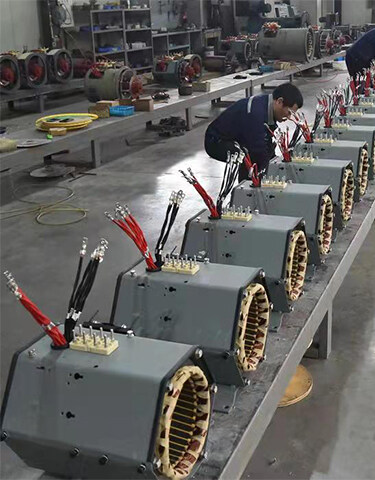Introduction to Hydraulic Piston Motors
Hydraulic piston motors are a crucial component in many industries, powering a wide range of machinery and equipment essential for various tasks. From construction to agriculture and manufacturing, these motors play a vital role in driving efficiency, productivity, and performance across different sectors.
Overview
Hydraulic piston motors are devices that convert hydraulic energy into mechanical motion. They operate based on the principles of fluid dynamics, utilizing pressurized hydraulic fluid to drive pistons, which in turn generate rotational motion. These motors are commonly used in hydraulic systems to provide the necessary power for driving heavy machinery and performing tasks that require precise control and handling.
Functionality
At the core of hydraulic piston motors is their ability to convert hydraulic pressure into mechanical force. The basic mechanism involves the movement of pistons within a cylinder, driven by the force exerted by pressurized hydraulic fluid. This movement creates rotational motion, which can be harnessed to power various types of machinery and equipment.
Hydraulic piston motors come in different configurations, including variable displacement and fixed displacement models. Variable displacement motors offer flexibility in adjusting output speed and torque, while fixed displacement motors provide consistent performance at a constant speed.

Applications
The versatility of hydraulic piston motors makes them indispensable in a wide range of industries. In the construction sector, these motors power heavy machinery such as excavators, bulldozers, and cranes, enabling tasks such as digging, lifting, and moving heavy materials with ease.
In agriculture, hydraulic piston motors drive farm machinery such as tractors, harvesters, and sprayers, facilitating operations such as plowing, planting, and crop spraying. Additionally, these motors are used in irrigation systems to power pumps and control valves, ensuring efficient water distribution in fields.
In manufacturing, hydraulic piston motors play a critical role in powering industrial machinery such as presses and injection molding machines. They are also used in material handling equipment such as conveyor systems and lifts, enabling the movement of goods within manufacturing facilities.
Importance
The importance of hydraulic piston motors cannot be overstated in industries where power, efficiency, and precision are paramount. These motors provide the driving force behind hydraulic systems, enabling the performance of heavy-duty tasks with ease. Their ability to deliver precise control and handling allows for faster operation speeds and increased productivity.
Moreover, hydraulic piston motors contribute to the overall performance and reliability of machinery and equipment. Their robust construction and efficient operation help reduce downtime and maintenance costs, ensuring uninterrupted workflow and maximum uptime.
In conclusion, hydraulic piston motors are indispensable components in various industries, powering machinery and equipment essential for a wide range of tasks. From construction and agriculture to manufacturing, these motors play a crucial role in driving efficiency, productivity, and performance across different sectors. Understanding their functionality, applications, and importance is essential for maximizing their benefits in diverse industrial settings.


